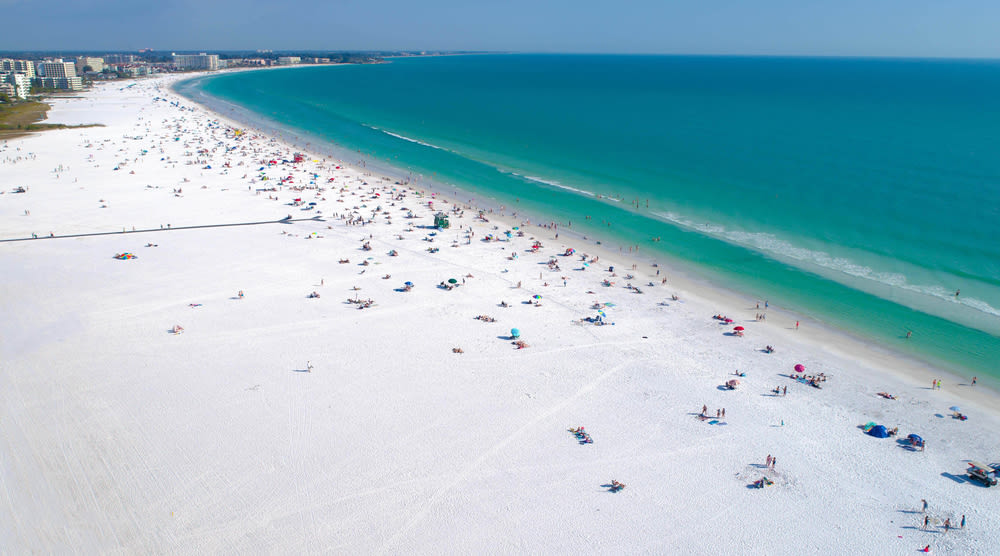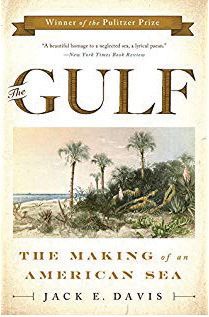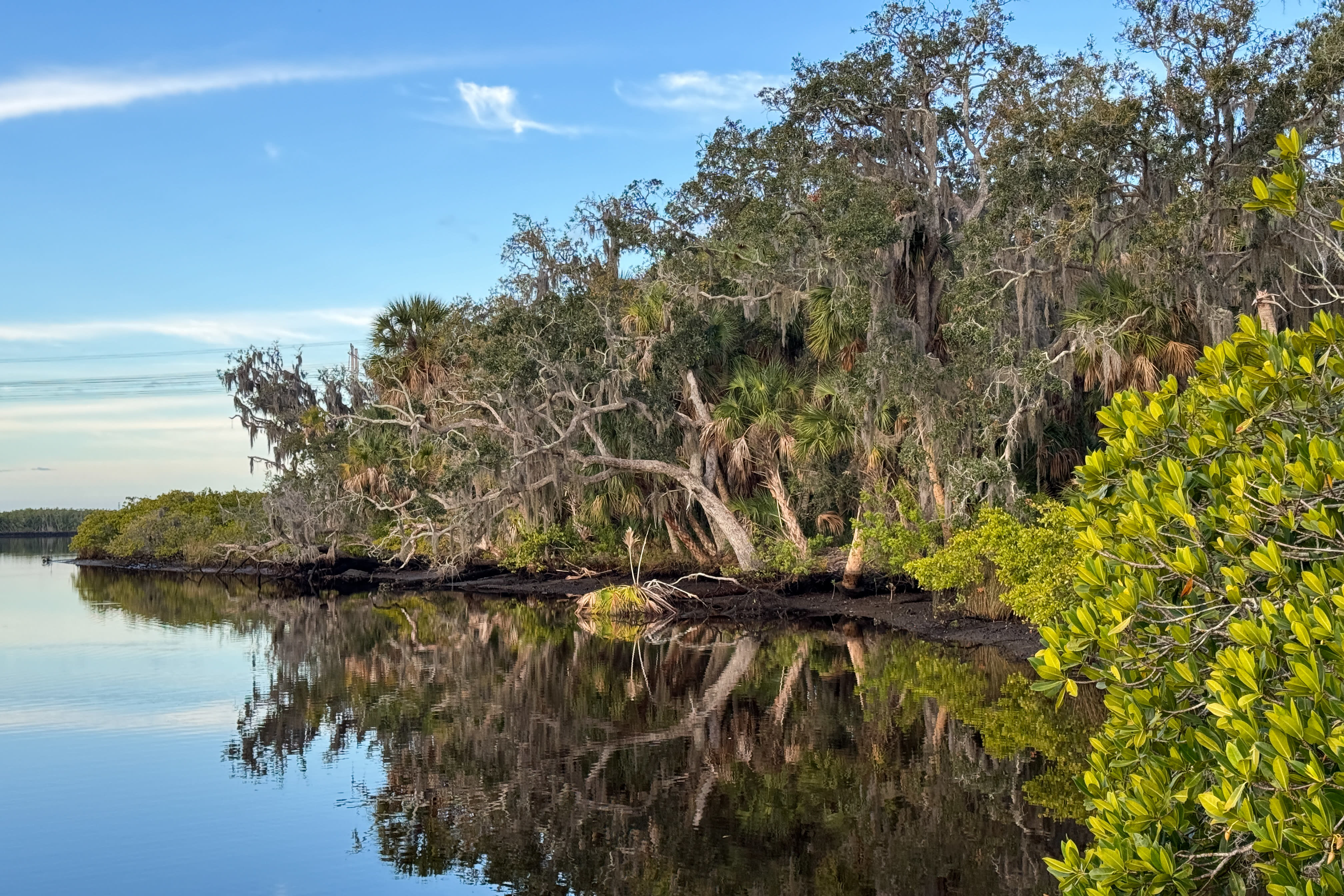Read an Excerpt From Jack E. Davis' Pulitzer-Prize Winning The Gulf: The Making of an American Sea

Siesta Key Beach
Image: Shutterstock
Chapter 14: The Growth Coast
The Sarasota that John [MacDonald] and Dordo [his wife] first encountered [in 1951] still had the enduring quaintness of summertime lake towns that they had known in upstate New York. Except, Sarasota would not remain consigned to the quaint past. Three years after they arrived, their new home came out of semi-isolation. The state replaced the Tampa Bay ferry with a double-span bridge, tall enough to let freighters pass under and ambitiously named the Sunshine Skyway. Boom; Sarasota County’s population exploded by 16 percent.

The Gulf: The Making of an American Sea by Jack E. Davis
Image: Courtesy Photo
The composed landscape descended into motion and noise. Snarling bulldozers never stopped. [Sarasota city planner John] Nolen’s scenic drive [via] U.S. 41 turned into a strident speedway that scattered city pedestrians. Wetlands were soon fender-bender parking lots, rooftops replaced treetops, and air conditioners rattled in the windows of houses. When neighbor took neighbor to court over noisy units, judges told plaintiffs to shut their windows if they didn’t like the sound of the new age. Damn if all these people and all their din, drowning out the singing birds and frogs and thrumming palm fronds, people who came for Florida’s natural vitality only to trample it and hide inside from it, didn’t annoy the hell out of MacDonald.
Getting out on the water was an easy escape to quietness. When he moved to the Gulf coast, he took to sailing and fishing, and wearing a yachting cap. And then noise came out of nowhere. He’d be spin-casting from the shallows on a “gray silent morning,” working his lure back and forth, drinking in the moment, and the wail of a dredge would come up on the wind. The mangrove fringe meant nothing to developers, and it meant everything. That it was wildlife habitat and a storm barrier was irrelevant; that it was abutment for new value-laden manufactured land was exceedingly relevant.
MacDonald saw mangroves yanked out by heavy equipment, piled up, and burned as refuse with other trees. He saw his fishing luck turn bad. It was all connected, a disquieting rippling outward—the “fast-dollar philosophy,” the conquest of land, the loss of nature, the diminished quality of life. He complained to friends and vented in The New York Times, the Sarasota Herald-Tribune, and his books—the personal feeding the creative, the creative capturing the changing reality. “Florida is constantly growing,” reflects the lead character in Dead Low Tide, a 1953 Fawcett paperback, “not in the normal fashion of other places, with more houses going up on existing land, but the land itself is growing.”
In 1966, MacDonald built a large bayside house on Siesta Key on his own growing land. He had to bring in thousands of years of fill—“trucked in, not dredge,” he assured family members who had heard his rants—and he had to buy a “small hunk of bay bottom” from the state before his contractor could erect a seawall. You saw this sort of duplicity back then—people who had gotten their slice of paradise and didn’t want others cutting into it. That wasn’t quite MacDonald. He wanted to shut the floodgates only enough to save the coasts from drowning in newcomers, and he opposed only growth that was a “hypnotic insistence on quantity against worth.” He would have appreciated a planner like John Nolen, and could sound like him. “Man is a part of nature. God help him, he cannot survive in a world where the order of nature around him has been destroyed.”



